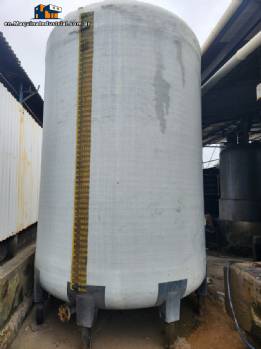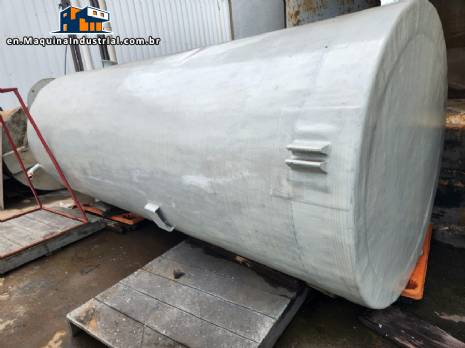Used machines for sale
 Polyethylene PE tanks Polyethylene PE tanks
Main brands:
|
| Polyethylene PE tanks |
Polyethylene (PE) Storage Tank:
What is it for:
A polyethylene (PE) storage tank is used to store liquids in a variety of industrial and commercial applications. These tanks are manufactured with high-density polyethylene (HDPE) or low-density polyethylene (LDPE), which are thermoplastic polymers known for their chemical resistance, durability and versatility. They are commonly used to store water, chemicals, fuels, liquid waste, among others.
How it works:
The basic operation of a polyethylene storage tank involves the safe containment of liquids and may include the following steps:
Manufacturing: Tanks are manufactured by molding polyethylene, a process that may involve techniques such as rotomolding or blow molding. This creates a seamless, monolithic structure that minimizes the risk of leaks.
Installation: Polyethylene tanks are designed to be installed in specific locations, such as industrial areas, farms, water treatment facilities, among others.
Storage: Liquids to be stored are added to the tank. Depending on the application, this may include drinking water, industrial chemicals, fertilizers, fuels, among others.
Safety and Sealing: Tanks are designed to offer safety and effective sealing, preventing leaks or contamination of the stored liquid.
Maintenance: Regular maintenance may include visual inspections, internal and external cleaning, and repair of possible damage.
Characteristics of Polyethylene (PE) Tanks:
Chemical Resistance: Polyethylene is known for its resistance to a wide range of chemicals, making it suitable for storing different substances.
Durability: Polyethylene tanks are durable and resistant to corrosion, extending their useful life.
Lightness: They are lighter compared to tanks made of materials such as steel, making transportation and installation easier.
Thermal Insulation: Polyethylene has thermal insulation properties, which can be beneficial in some applications.
Easy Installation: The manufacturing and design of the tanks facilitate installation in different environments.
Versatility: Can be used to store a variety of liquids, from drinking water to harsh chemicals.
Cost-Effectiveness: In many cases, polyethylene tanks are more affordable compared to tanks made from other materials.
Common Applications:
Water Storage: Polyethylene tanks are often used to store water in farms, homes, industries and water treatment systems.
Industrial Chemicals: Can be used to store industrial chemicals, especially those that do not react adversely with polyethylene.
Fuel Storage: In some situations, polyethylene tanks are used to store fuels such as diesel or oil.
Effluent Treatment: They are used in wastewater treatment systems to store liquid effluents.
Fertilizer Storage: Used in agricultural operations to store liquid fertilizers.
Food Industries: Can be used to store liquids in the food industry, such as oils, syrups or chemicals used in the production process.
It is important to note that the choice of polyethylene tank will depend on the compatibility of the material with the liquid to be stored and the specific regulations for each application. |
|
|
|
 |
Closed fiberglass storage tank.
Approximate capacity: 30,000 liters.... |
|
|
 |
Fiberglass reservoir tank.
Approximate capacity: 8,000 liters.... |
|
|
|
|
Visitation: Schedule date for visitation and check equipment availability. Merely illustrative images.
|
|
|
| |
|
|
Photos and images sent by email will be considered as ad authorization on our websites and marketing.
Camargo Industrial has no responsability for the data delivered by the advertiser, (Operation, technical, maintenance, warranties, technical delivery) and registration of the same data, exempting Camargo Industrial responsibilities on the veracity of the information described, civil and criminally.
The advertiser declares that the equipment is their property, settled without alienation, pending fiscal or judicial attachment.
Standard Work Safety of Machines and Equipment (NR12): 12.1.1. Camargo Industrial does not participate in the use phase construction, transport, assembly, installation, adjustment, operation, cleaning, maintenance, inspection, decommissioning and dismantling of machinery or equipment, any such liability of the seller attributes and / or buyer, relieving - any responsibility Camargo Industrial.
|
 |
| |
|





